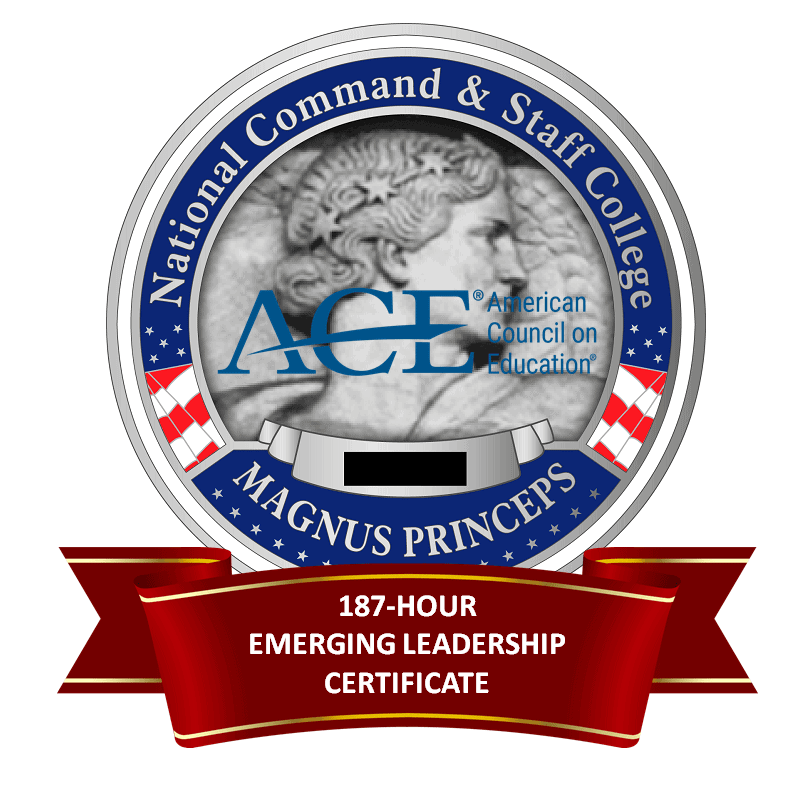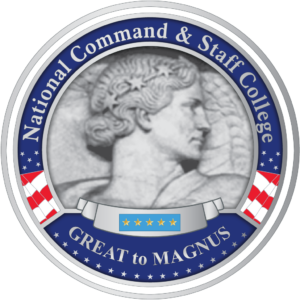EMERGING LEADERS PROGRAM

Objective: The course objective is to improve the leadership skills of Law enforcement personnel to enhance their performance to deliver results with confidence. Although the program is suitable for all ranks, most find it extremely beneficial for rising starts and/or 1st line supervisors.
Learning Outcome: Upon completion of the course, the students will be able to develop functional knowledge of personal leadership style and strengths; understand the foundation and principles of leadership; understand personal potential to enhance leadership capacity; develop a functional knowledge of how to lead organizational change; understand the value of teamwork; assess and improve leadership climate and agency culture; and learn practical critical thinking and value decision making.
Instruction: The methods of instruction include audio visual, discussion, computer based training, and lecture. The general course topics include leadership principles; leadership foundation; leadership theories; leadership practices; leadership application; leadership advancement; leadership styles; self-management skills; interpersonal communication; conflict management; problem-management and opportunity leveraging skills; team and organization development skills versatility skills.
Assessments: The methods of assessment include quizzes, written papers and essays, performance rubrics, and examination with a minimum passing score of 80 percent.
ACE College Credit Recommendation: In the upper-division baccalaureate degree category, 6 semester hours in organizational leadership, public safety leadership, or sociology (10/19). ACE Member Universities
ICLD 1 – Leadership Foundation and Principles
- Leadership Principles & Concepts
- Lincoln on Leadership
- First-Line & Mid-Level Supervision
- Leadership and Ethics
- Leadership and Change
- Personal Leadership
- Leadership Theories and DiSC Styles
- Leadership & Power
- Moral Compass
- Active Listening
- Effective Communication
- It’s Your Ship
- Military Leadership
ICLD 2 – Leadership Theories and Practices
- Generations
- It’s Our Ship
- Practical Emotional Intelligence
- Good to Great
- Proactive Communication
- Conflict Management
- Cultural Diversity
- Action Leadership
- Reflective Leadership
- Start with the Why
- Legacy Leadership
- Succession Planning
- Human Capital Management
ICLD 3 – Leadership Application and Advancement
- Human Factors & Leadership
- Founding Fathers on Leadership
- Adaptive Leadership
- Servant Leadership
- Credible Leadership
- Effective Leadership
- Toxic Leadership
- Community Leadership
- Leadership & Customer Service
- Cyrus on Leadership
- Adaptive Decision Making as a Deliberate Counter VUCA Tactic
- Tactical Leadership
- Emotional Intelligence: Why it Can Matter More Than IQ
- Deep Change and Positive Emotional Intelligence
ICLD 4 – Every Officer is a Leader: Competency and Mastery
- The Skill of Grounding: Focusing Awareness in the Present
- The Skills of Centering: Including Self in the Context of Events
- The Skills of Beliefs Clarification and Resolution
- Specifying Your Personal Purpose and Vision
- The Skill of Identifying Your Values
- The Skill of Life Planning to Provide Motivation and Balance
- The Skill of Educational Planning
- The Skill of Career Planning
- The Skill of Time and Priority Management
- The Skill of Stress Management
- The Skill of Energy Management
- The Skill of Maintaining a Positive Mental Attitude
- Self-Disclosure: Sharing Appropriately with Others
- Image Management: Taking Responsibility for How You See Yourself
- Impression-Management Skills: Taking Responsibility for How Others See You
- Attending: Giving Undivided Attention to Others
- Observing: Simply Seeing another Person without Distorting or Judging
- Suspending Frame of Reference: The Key to the Golden Rule
- Questioning: Appropriate Gathering of Information
- Listening: Checking for Others Intend to Mean
- Responding with Understanding: Getting on the Inside
- Assertiveness: Speaking Honestly and Kindly with Self-Control
- Confrontation: Telling People the Truth about Unacceptable Behavior
- Challenging: Helping Others to see Strengths and Opportunities and Move Towards Positive Change
- Advanced Empathy
- Problem-Exploration: Facilitating the Exploration of Others’ External and Internal Problems
- Problem-Specification: The Most Complex Skill
- Problem-Ownership: Helping Ourselves and Others Own Up
- Goal-Setting: Securing Ownership to Get Commitment to Action
- Goal-Ownership: Securing Ownership to Get Commitment to Action
- Action-Planning: Exploring and Evaluating Specific Pathways for Achievement
- Implementing Action Plans: Increasing the Success Rate
- Confrontation: Pacing and Helping Others Face Self-Defeating Behaviors
- Self-Sharing: Giving Others Additional Perspectives With Your Own Story
- Immediacy: Helpful People Get Unstuck
- Making an Effective Referral to a Professional Helper
- Informal Assessment Skills: Walking Around Talking with People
- Formal Assessment: Research, Interviewing, and Reporting
- Problem-Management Facilitation: Leading Teams Through Resistance to Change
- Needs Clarification: Clarifying the Need for Change
- Readiness-Checking: Overcoming the Real Blocks to Change
- Values Alignment
- Vision and Purpose Consensus-Building
- Strategy-Consensus Building
- Implementation Planning: Specifying and Implementing Steps, Dates, and People to Expedite the Achievement of Goals
- Strategic Plan Monthly Review and Team Performance
- Leading teams Toward Continuous Learning for Continuous Improvement
- Building Accountability
- Assessment of Personal Styles and Style-Shifting
- Assessment of Roles and Role-Shifting into appropriate tasks
- Intentionally Assessing (53) Style, Readiness, Willingness and Ability, and (54) Shifting Skills
- Recognition of a Team’s or Organization’s Stage of Development
- Facilitation of the Organization Development Stages
- Formation and Facilitation of a Cross-Functional Continuous Improvement Team
- Assessment of Leadership Skills to Help Yourself and Others Plan for Further Development
- Coaching Other Leaders to Become More Effective Leaders
- Lead Environmental Scanning and Initiating Proactive Responses to Future Trends

